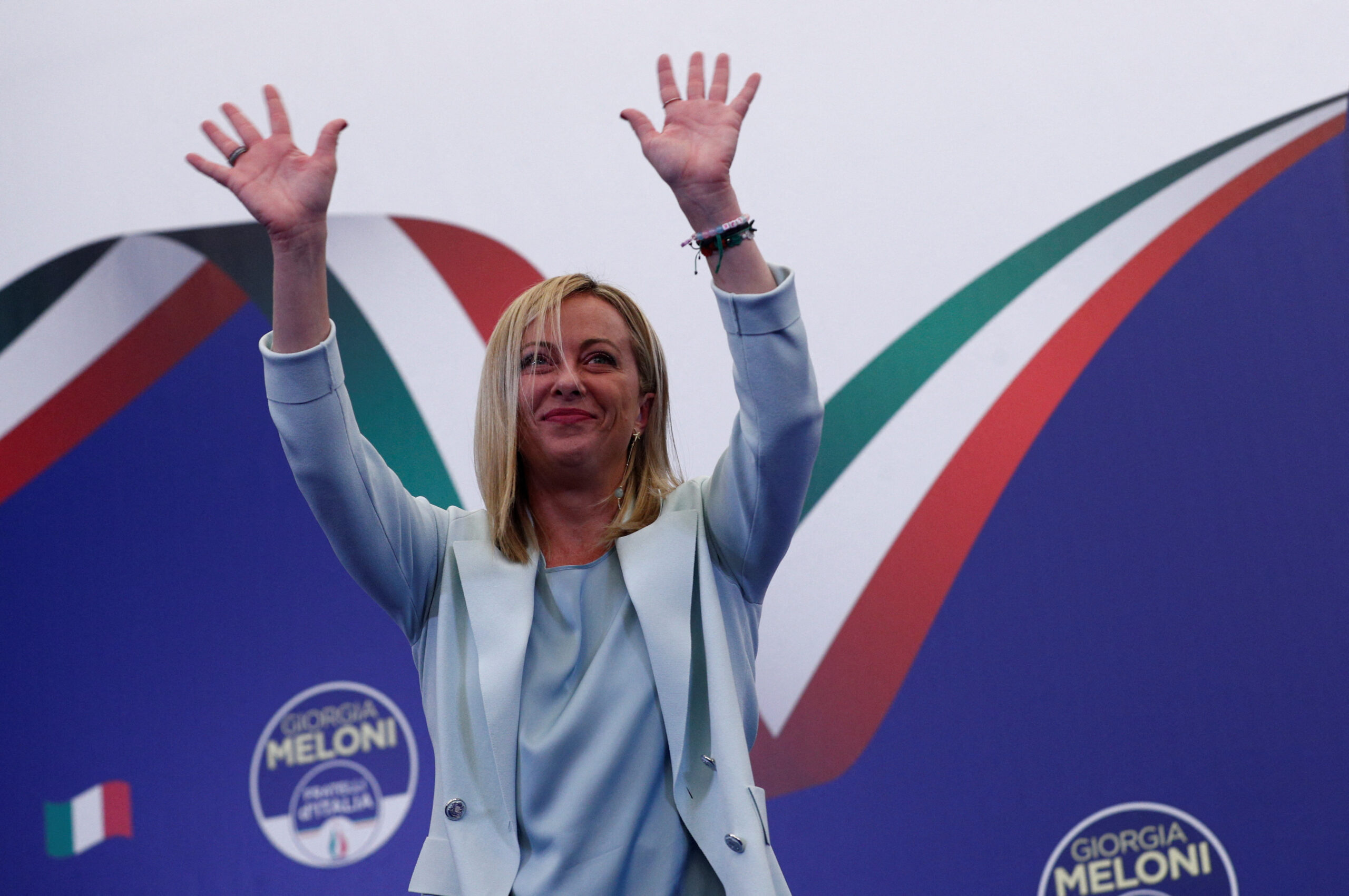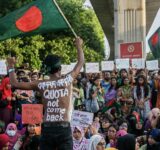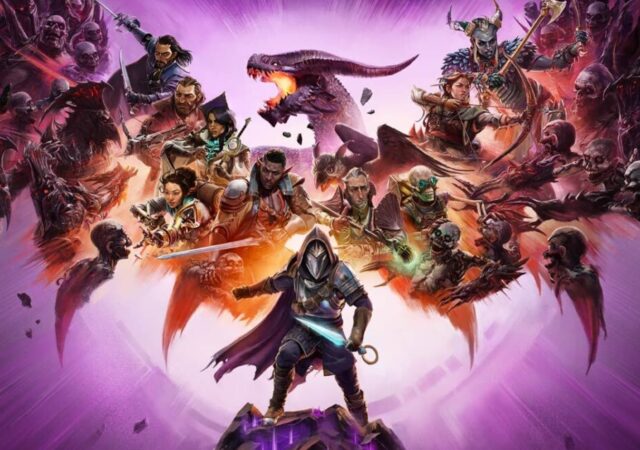On September 25, the general election in Italy has practically confirmed the Brothers of Italy leader, Giorgia Meloni, to be the first female prime minister of the country. According to CNN, Meloni is marshaling the most far-right regime since Mussolini’s fascist era. Historically, Benito Mussolini has been known as the father of Fascism, an ideology entailing extreme militaristic nationalism, contempt for electoral democracy and political and cultural liberalism, and championing social hierarchy. The reappearance of similar views after so many decades is quite alarming and is something which calls for more attention.
The global political spectrum is divided into left and right-wing ideologies ranging from social equality to social hierarchy.
Far-right politics, often termed right-wing extremism, represents authoritarian, ultra-conservative sentiments advocating nativistic principles which favor native inhabitants over immigrants, promote traditional practices and such.
Nazism and Fascism are the most widespread far-right ideologies. They propagate racism, xenophobia, and homophobia among other reactionary views, and engage in violence, oppression, domestic terrorism, cultural genocide, and so on. At present, right-wing politics thrives in neo-Nazi, neo-Fascist, alt-right, and bigotry movements.

The ultraconservative political party Brothers of Italy have their fundamentals in anti-immigration and Eurosceptic ideals.
The 45-year-old leader, Meloni is extremely conservative and strongly opposes the LGBTQ+ community, vowing to reconsider Italy’s 2016 legalization of same-sex unions.
Her hostility towards abortion, calling it ‘tragic’, has also raised concerns for women’s rights in the country.
Her roots lie in The National Alliance, originally the Italian Social Movement, which was founded by unrepentant Mussolini loyalists. The logo of Brothers of Italy which she later formed in 2012, even fashions a tricolor flame (red, green and white). This tricolor flame is an emblem of Movimento Sociale Italiano (MSI) which was founded in 1946 by veterans of the Italian Social Republic led by Mussolini. Meloni speaks for a rising segment of Italy’s conservative population supported by the country’s dominant Catholic Church. In fact, this phenomenon can be observed in various parts of the world.
In both Europe and the United States, ultraconservative and far-right organizations have grown in both visibility and action in recent years.
Populist parties like the Alternative for Germany (AfD), Matteo Salvini’s Northern League in Italy, and Law and Justice (PiS) in Poland have gained significant political traction. Even two of the world’s greatest democracies, Brazil and India, now have a radical right leader. In short, the far right is making a comeback in multiple regions of the world, emerging from the political shadows after several decades.
Nations which were previously celebrated for their liberal perspectives are now developing these peremptory ethics, most notably in Europe.
In a country that has long taken pride in its openness and tolerance, the Sweden Democrats, who are staunchly opposed to immigration, appear poised to pass the Moderates, Sweden’s second-largest party, in the 2022 general election. Traditional conservative concerns about immigration, violence and a rise in gang shootings have dominated their election campaign. After a surprising election victory, the right-wing Sweden Democrats are on the cusp of joining the ruling coalition.
Ukraine was a symbol of democracy in Eurasia, particularly during the 2014 Revolution of Dignity. But in recent times, the far-right practice has become commonplace, even among the educated and influential members of society. These right-wing factions associated with pogroms (violent riots) in Roma camps limit the public rights of the LGBTQ+ community, religious and linguistic minorities, and prosecute anyone they deem wrong and threatening to Ukrainian conventions.
More than 178 such crimes have been reported to the police in 2018. They are active not only in upholding far-right principles but also as political mercenaries, paid to give out a service.
Georgia has been a prime example of liberalization and democratic reforms for they hope to join the EU and NATO. However, their underlying ethnic-nationalistic supremacy has advocated far-right narratives to slowly gain popularity. The Georgian Orthodox Church also influences, albeit not directly, far-right tendencies by condemning and persecuting the LGBTQ+ community through priests participating in radical gatherings.
The Conservative People’s Party of Estonia (EKRE) is a far-right party that joined the government coalition after tripling its seats in the legislative elections. Its rapid succession came as a surprise to many in Estonia, a strong proponent of liberalism in Europe. Despite their progressive economy, stability, and liberal policies, EKRE came victorious in crusading against same-sex marriage, feminism, migrants, and multiculturalism.
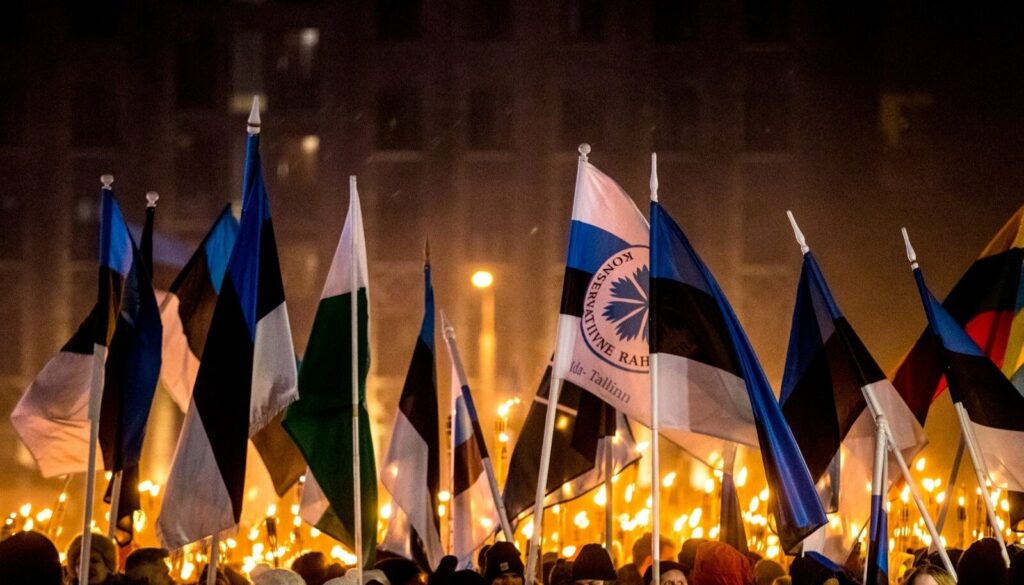
Armenia has endured marginalization ever since its independence from the Soviet Union in 1991. The 2018 Armenian Velvet Revolution, despite its efforts to upheave democracy, could not halt the archconservative momentum which led to right-wing establishment.
Armenia’s social landscape is suitable to propagate reactionary views due to its predominantly conservative Orthodox Christian influences.
Furthermore, historical grievances related to persecution by foreign foes are strongly ingrained in Armenian national identity, providing ample fodder for the radicalization of militants.
It seemed impossible that a far-right party could prosper in a nation so scarred by its fascist past when AfD initially surfaced. In addition to criticizing German Chancellor Angela Merkel for her refugee policies, they feed on racist and Islamophobic rhetoric that is increasingly widespread among far-right organizations.
Their method of communication is extremely belittling, having slogans like, “Burkas? We prefer bikinis” and “New Germans? We’ll make them ourselves.”
The fear of immigrants and refugees taking away job opportunities among the low-income East Germans and anti-immigration sentiments from the Soviet occupation played a role in resurrecting alt-right beliefs.
Marine Le Pen, the far-right candidate in France, lost to President Emmanuel Macron. However, she received more than 41% of the vote in a runoff, significantly more than she did in 2017. These numbers indicate that support for her anti-immigration stance is rising in France. In the October 2nd election, Brazilian President Jair Bolsonaro received millions more votes than projected but still came in second place, behind Luiz Inacio Lula da Silva, the candidate of the left. Both parties must compete in a run-off because none received more than 50%.
The numbers in recent elections have alluded to how right-wing sentiments are increasing among masses.
While many of these regions have a history darkened by far-right values, its resurgence is a concern for everyone, mainly those who are considered as minority communities or cultures and other groups who have been advocating for their rights for years.
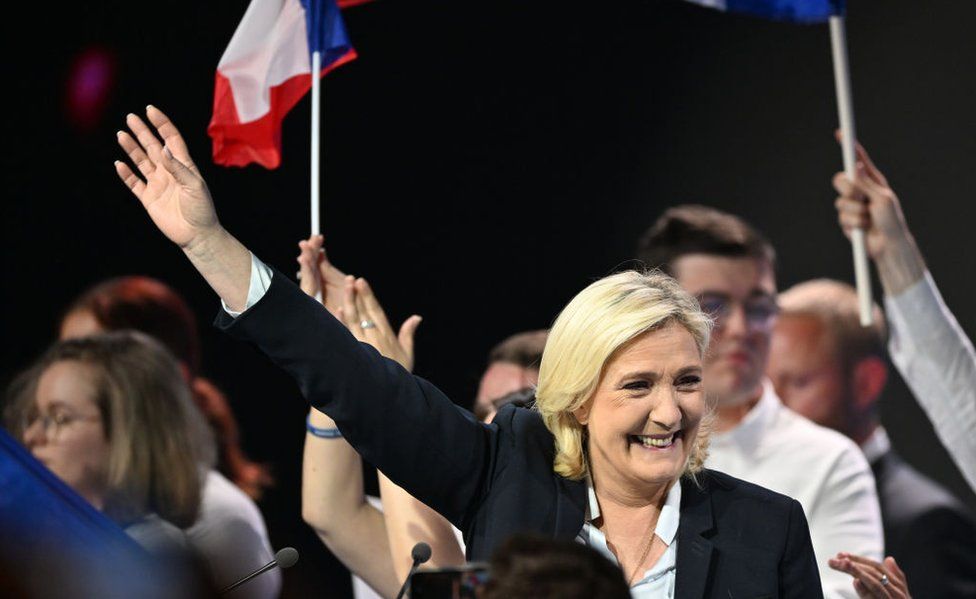
Right-wing followers are more closed-minded, and dogmatic, and need discipline, rigidity, and cerebral closure than left-wing supporters. Because these traits boost in-group bias, out-group antagonism and violence may be more common among right-wingers. Since people bear a negative impression of conservatism, far-right candidates are hesitant to divulge their true intentions before elections. In actuality, the number of right-wingers might be far beyond our imagination and the liberal society many countries have been working towards might be taking a few steps back.

